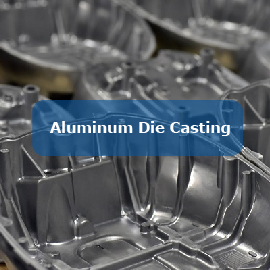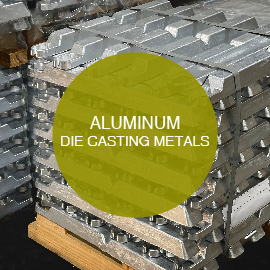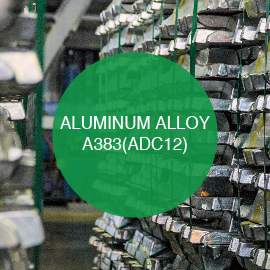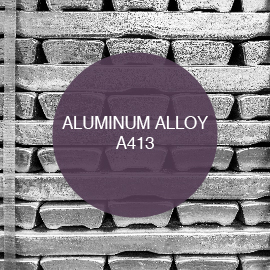ALUMINUM ALLOY A380(ADC10)
The ADC10 designation can also be given to the Aluminum A380. It is a type of alloy that is frequently employed in the process of die-casting various components. It is one of the alloys that is specified and utilized most frequently since it offers a great deal of value. In addition to being useful in a vast range of applications, it possesses important mechanical qualities.

A380 Characteristics
Die casting with the Aluminum ADC10 alloy enables manufacturers to produce high-quality goods in a manner that is both cost-efficient and effective, without compromising the products’ long-term reliability. Even with high pressure, the cast pieces will function well without cracking or splintering.
The anti-soldering capabilities of the ADC10 will lengthen the time your dies and tools remain in usable condition. Because of its composition, machine downtime, damage, and maintenance needs will be cut significantly. The ADC10 is far more bendable and malleable than any of the steel alternatives because it is constructed primarily out of pure Aluminum.
However, it also contains other metals, including Silicon (Si), Zinc (Zn), Manganese (Mn), Copper (Cu), and Iron (Fe) that increase its strength and make it extremely highly resistant to corrosion and fracture. It offers the optimal balance of casting, thermal, and mechanical qualities, and demonstrates great resistance to cracking as well as pressure tightness and fluidity.
Advantages
A list of advantages of this alloy is given below:
- It is possible to make very lightweight pieces with a range of surface treatments using this alloy.
- It has a high level of corrosion resistance, particularly when it has a suitable surface finish.
- Despite having thin walls, it is nonetheless able to maintain extremely high dimensional stability.
- It is anti-soldering, which is a property that is necessary for the die-casting process.
- In comparison to any other type of metal alloy, it is capable of withstanding the highest possible operational temperatures.
Applications
Because of its many advantages, ADC10 is an excellent choice for a wide variety of applications, including die casting and manufacturing. It is utilized in a wide variety of products in different industries, for example,
- Electronic Industries (digital displays, computer equipment, printer accessories, electronic accessories, LED lights, etc.)
- Automotive Industries (motors, automotive parts, etc.)
- Toys Industries (metal shells, etc.)
- Furniture Industries
- Sports Industries
- Transportation Industries
Mechanical Properties
| Contents | Value |
| Brinell Hardness | 80 HB |
| Ultimate Tensile Strength | 324 MPa |
| Yield Strength | 160 MPa |
| Shear Strength | 190 MPa |
| Fatigue Strength | 137 MPa |
| Impact Strength | 4 J |
| Elongation | 3.5 % in 50 mm |
| Modulus of Elasticity | 71.0 GPa |
| Machinability | 50 % |
| Poisson’s Ratio | 0.33 |
| Shear Modulus | 26.5 GPa |
Physical Properties
| Contents | Value |
| Electrical Conductivity | 23.0 % IACS |
| Thermal Conductivity | 96 W/mK |
| Melting Point (average) | 566 ℃ |
| Coefficient of Thermal Expansion | 21.8 µm/m°K |
| Specific Heat Capacity | 963 J/Kg.K |
| Density | 2.71 g/cm³ |
Alloy Composition
| Contents | Value |
| Aluminum (Al) | 80.25 – 83.25 % |
| Zinc (Zn) | 3.0 % |
| Silicon (Si) | 7.5 – 9.5 % |
| Magnesium (Mg) | 0.1 % |
| Tin (Sn) | 0.35 % |
| Copper (Cu) | 3 – 4 % |
| Manganese (Mn) | 0.5 % |
| Nickel (Ni) | 0.5 % |
| Iron (Fe) | 1.3 % |
| Other-Metallic | 0.5 % |





